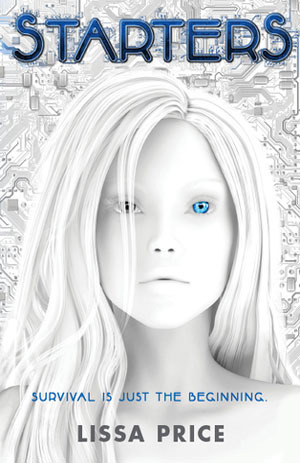
The Resistance
Book Description
In a dystopian world where youth is the ultimate currency, the fight for survival becomes a deadly game. When the powerful elite make a chilling decision to eradicate those deemed 'unworthy,' a band of rebels ignites a spark of hope against tyranny. Among them is one girl whose very existence could change everything. As alliances form and betrayals loom, the line between friend and foe blurs. Can they dismantle the system before it consumes them all? With love, sacrifice, and a ticking clock, who will rise to challenge the darkness? What price are they willing to pay for freedom?
Quick Book Summary
In Gemma Malley's "The Resistance," a chilling future unfolds where immortality is possible for the privileged, but at a terrible cost. In this world, the youth are tightly controlled and their lives expendable, while the older generation clings to life indefinitely. Amidst this oppression, a small group of rebels, known as the Resistance, rises to challenge the system and fight for the rights of the young. Central to the story is Anna, a former Surplus whose newfound freedom and identity threaten the foundations of the regime. As Anna and her allies traverse the dangers of betrayal, heartbreak, and moral uncertainty, they must make impossible choices. Their stand against tyranny reveals the resilience of hope and the enduring human desire for freedom, love, and justice.
Summary of Key Ideas
Table of Contents
The Value and Exploitation of Youth
In a society where the pursuit of eternal life is the ultimate goal, the young are relegated to a class of "Surplus"—individuals deemed unnecessary and forced into servitude. The privileged, immortal elite enforce strict population control: for anyone to have a child, an older citizen must forfeit their own immortality. This arrangement breeds resentment and fuels an underground resistance. At the story’s heart is Anna, a former Surplus girl who gains her freedom and must navigate a world that sees her as a threat. The Resistance, a clandestine group determined to overthrow the system, becomes her new family, offering both hope and risk.
The Fight for Freedom and Identity
Anna’s journey is fraught with internal and external conflict. She struggles to reconcile her traumatic past with her newfound sense of agency. The narrative explores her growing attachment to Peter, another rebel, and how their bond strengthens their resolve. Together, they must grapple with tough questions about loyalty, trust, and the meaning of freedom, even as betrayal threatens to undermine their cause from within. The oppressors' fear of rebellion makes the stakes even higher, driving the characters to desperate measures.
Complex Loyalties and Betrayals
As the Resistance gains momentum, their once-secret movement turns into open defiance. The elders, fearing a loss of control and the destruction of their immortal way of life, respond to the threat with increasing brutality. Anna, Peter, and their allies must act quickly to expose the inhumane policies at the heart of the regime. Their strategies—a mix of sabotage, persuasion, and risk-taking—test their far-reaching commitments and force them to confront personal weakness and doubt in the face of overwhelming opposition.
Sacrifice and the High Cost of Change
The emotional core of the book lies in the sacrifices the characters are willing to make for the possibility of change. Not everyone survives unscathed: relationships are tested, old friends become enemies, and dreams are shattered. Anna realizes that freedom comes at a steep price, yet she also discovers an inner strength she never knew she possessed. Her sense of justice drives her to defy the odds and fight not just for herself or her friends, but for an entire generation denied a future.
Hope Amidst Oppression
Despite the bleakness of their world, hope ultimately endures. The Resistance's efforts plant seeds of rebellion that begin to break the oppressive regime’s grip. Anna’s existence becomes emblematic of the world’s potential for change. As the book concludes, the struggle is far from over, but the cycle of obedience and tyranny has been irrevocably challenged. "The Resistance" emphasizes the power of collective action, the necessity of courage, and the belief that even in darkness, light can be found.
Download This Summary
Get a free PDF of this summary instantly — no email required.





